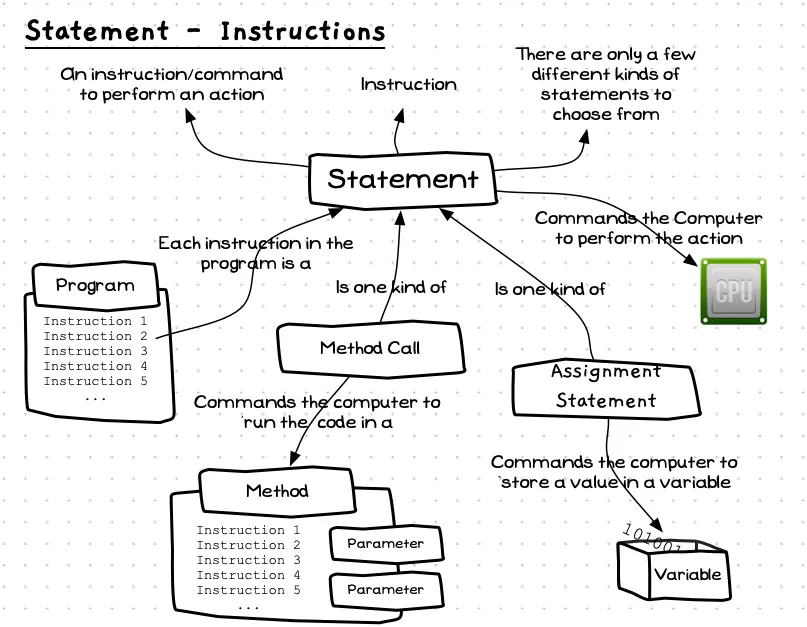Statement
As we explored in the previous chapter, when you are creating a program you define the actions the computer will perform when the program is run. Each of these instructions is coded as a statement within the program. This style is imperative programming. Imperative means to give authoritative commands, and that is what we do in our programs. Our programs are lists of authoritative commands (statements) that tell the computer the actions it is to perform.
The concept map below shows the concepts related to statements. A statement is a term used to describe the instructions in your code, and as such represent an instruction or command to perform an action. As we have seen, a program has a list of statements that are followed when it is executed. For example, a method call is a kind of statement that tells the computer to run the code in a method. An assignment statement gets the computer to store a value in a variable.

Statement — when, why, and how
As you learn to program, you will need to learn all of the different kinds of instructions you can give the computer. These will be statements in the programming languages you learn. Just knowing that statement means instruction will help you engage with these conversations and documentation.
In C#
In a statement you are commanding the computer to perform an action. There are only a few statements you can choose from in a programming language. At this stage we have two : assignment statements and method calls.
Examples
The following listing shows an example of method call statements in a simple C# program.
using static System.Console;
// Introduce knightsWriteLine("We are the knights who say 'Hi!'");Write("We are the keepers of the sacred words:");WriteLine(" 'Ni', 'Peng', and 'Neee-wom !'");WriteLine("The Knights Who Say 'Hi' demand a sacrifice.");WriteLine("We want .... a shrubbery!");
return 0;